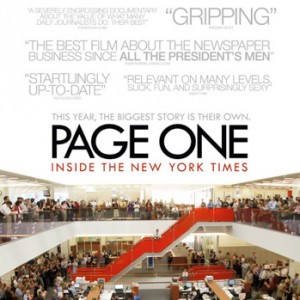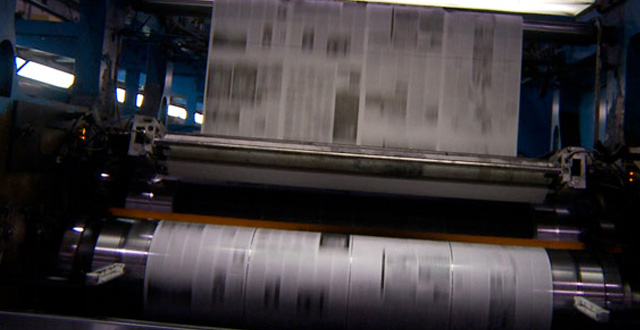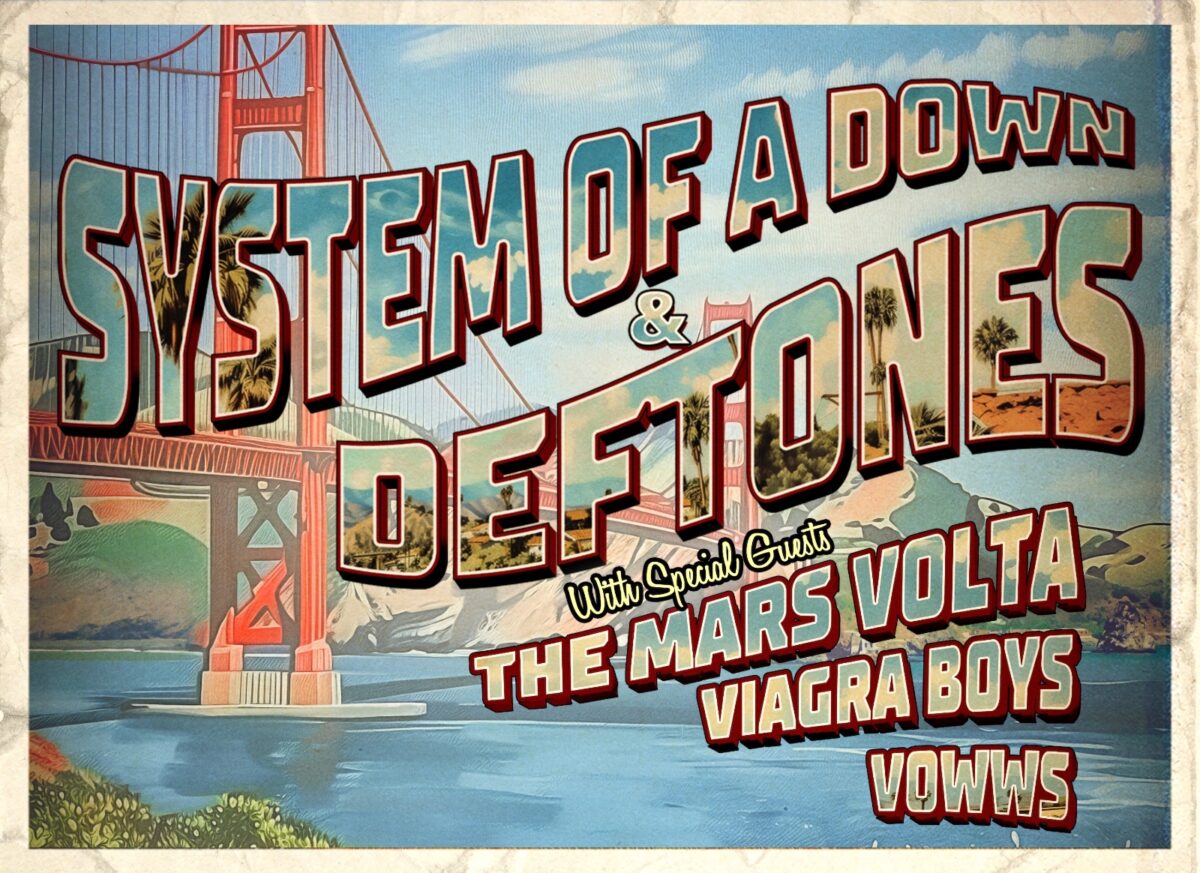Page One: Inside the New York Times
Page One: Inside the New York Times provides an unprecedented look into the inner workings of the New York Times.
Rating: 3 out of 5 stars.
For more than a century and a half, the New York Times has, despite its city-centered name, become the newspaper of national and, some might argue, international record. However, readership has declined over the last decade due to a combination of forces, including the arrival and expansion of digital media, bloggers and citizen-journalists.
To cover all of the issues involved in a single documentary is a tall order, but that’s exactly what documentarian Andrew Rossi  (Le Cirque: A Table in Heaven) attempts to do with Page One: Inside the New York Times. Not content with exploring the newspaper’s potential demise in a fast-moving, radically changing media landscape, Rossi, granted unprecedented access to the newspaper’s offices in Manhattan for an entire year, covers key stories from last year.
(Le Cirque: A Table in Heaven) attempts to do with Page One: Inside the New York Times. Not content with exploring the newspaper’s potential demise in a fast-moving, radically changing media landscape, Rossi, granted unprecedented access to the newspaper’s offices in Manhattan for an entire year, covers key stories from last year.
Understandably hoping to preempt claims of a pro-New York Times bias, Rossi also covers well-trod, if no less significant, ground, briefly examining the Jayson Blair plagiarism scandal and the run-up to the U.S.-led invasion of Iraq in 2003—specifically former Times writer Judith Miller’s egregiously flawed reporting that helped to buttress the Bush Administration’s case for invading Iraq, and several others.
But the film suffers from at least one major problem. In the effort to cover so much ground in a limited time, Rossi often brushes past the details and the context necessary to fully understand the subject or issue under discussion, assuming, probably correctly, that anyone lured to pay the full admission price to see Page One: Inside the New York Times is, at minimum, a regular reader eager to uncover a morsel of insight or new information into the inner workings of the most well-respected daily newspaper in the United States.
Rossi did luck out, however, by giving David Carr, the newspaper’s media columnist, substantial camera time. A raconteur of many words, Carr expounds on many subjects, from the personal (his history as a drug addict) to the professional (the challenges faced by the New York Times in a changing media and economic environment) with wit, humor, and insight. He’s also the chief defender against the newspaper’s critics.
In one instance, he browbeats a new media company for their arrogance and disrespect. In another example recorded at a media conference, Carr vigorously defends the newspaper against Markos Moulitsas, the founder of DailyKos, a left-liberal website, after Moulitsas brings up the Judith Miller fiasco in a discussion of the New York Times’ failings.
Carr’s lively, engaging onscreen presence is all to the good, but he doesn’t have an answer to the newspaper’s ongoing financial problems. To be fair, no one does—at least not yet.
Carr, his editors, and other reporters cite investigative journalism as something that will be lost if the newspaper and counterparts in other major cities fold or scale back significantly. They’re right that it’d be loss, not just for readers of the New York Times, but for the mainstream media (where tabloid-level sensationalism already dominates daily/nightly coverage) and, by extension, the country, as a whole.
Watch the Trailer








